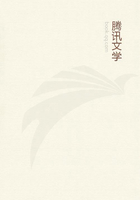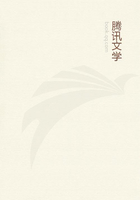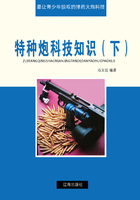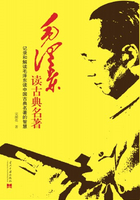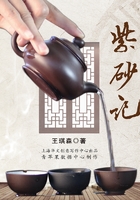This scandalous story, wrung out of his own lips, was heard by the opposition with consternation and shame, by the ministers and their friends with vindictive exultation. It was resolved, without any division, that he should be sent to the Tower, that he should be kept close prisoner there, that he should be expelled from the House. Whether any further punishment could be inflicted on him was a perplexing question. The English law touching forgery became, at a later period, barbarously severe;but, in 1698, it was absurdly lax. The prisoner's offence was certainly not a felony; and lawyers apprehended that there would be much difficulty in convicting him even of a misdemeanour. But a recent precedent was fresh in the minds of all men. The weapon which had reached Fenwick might reach Duncombe. A bill of pains and penalties was brought in, and carried through the earlier stages with less opposition than might have been expected. Some Noes might perhaps be uttered; but no members ventured to say that the Noes had it. The Tories were mad with shame and mortification, at finding that their rash attempt to ruin an enemy had produced no effect except the ruin of a friend. In their rage, they eagerly caught at a new hope of revenge, a hope destined to end, as their former hope had ended, in discomfiture and disgrace. They learned, from the agents of Sunderland, as many people suspected, but certainly from informants who were well acquainted with the offices about Whitehall, that some securities forfeited to the Crown in Ireland had been bestowed by the King ostensibly on one Thomas Railton, but really on the Chancellor of the Exchequer. The value of these securities was about ten thousand pounds. On the sixteenth of February this transaction was brought without any notice under the consideration of the House of Commons by Colonel Granville, a Tory member, nearly related to the Earl of Bath. Montague was taken completely by surprise, but manfully avowed the whole truth, and defended what he had done. The orators of the opposition declaimed against him with great animation and asperity. "This gentleman," they said, "has at once violated three distinct duties. He is a privy councillor, and, as such, is bound to advise the Crown with a view, not to his own selfish interests, but to the general good. He is the first minister of finance, and is, as such, bound to be a thrifty manager of the royal treasure. He is a member of this House, and is, as such, bound to see that the burdens borne by his constituents are not made heavier by rapacity and prodigality. To all these trusts he has been unfaithful. The advice of the privy councillor to his master is, 'Give me money.' The first Lord of the Treasury signs a warrant for giving himself money out of the Treasury. The member for Westminster puts into his pocket money which his constituents must be taxed to replace." The surprise was complete; the onset was formidable; but the Whig majority, after a moment of dismay and wavering, rallied firmly round their leader. Several speakers declared that they highly approved of the prudent liberality with which His Majesty had requited the services of a most able, diligent and trusty counsellor. It was miserable economy indeed to grudge a reward of a few thousands to one who had made the State richer by millions. Would that all the largesses of former kings had been as well bestowed! How those largesses had been bestowed none knew better than some of the austere patriots who harangued so loudly against the avidity of Montague. If there is, it was said, a House in England which has been gorged with undeserved riches by the prodigality of weak sovereigns, it is the House of Bath. Does it lie in the mouth of a son of that house to blame the judicious munificence of a wise and good King? Before the Granvilles complain that distinguished merit has been rewarded with ten thousand pounds, let them refund some part of the hundreds of thousands which they have pocketed without any merit at all.
The rule was, and still is, that a member against whom a charge is made must be heard in his own defence, and must then leave the House. The Opposition insisted that Montague should retire. His friends maintained that this case did not fall within the rule.
Distinctions were drawn; precedents were cited; and at length the question was put, that Mr. Montague do withdraw. The Ayes were only ninety-seven; the Noes two hundred and nine. This decisive result astonished both parties. The Tories lost heart and hope.
The joy of the Whigs was boundless. It was instantly moved that the Honourable Charles Montague, Esquire, Chancellor of the Exchequer, for his good services to this Government does deserve His Majesty's favour. The Opposition, completely cowed, did not venture to demand another division. Montague scornfully thanked them for the inestimable service which they had done him. But for their malice he never should have had the honour and happiness of being solemnly pronounced by the Commons of England a benefactor of his country. As to the grant which had been the subject of debate, he was perfectly ready to give it up, if his accusers would engage to follow his example.
Even after this defeat the Tories returned to the charge. They pretended that the frauds which had been committed with respect to the Exchequer Bills had been facilitated by the mismanagement of the Board of Treasury, and moved a resolution which implied a censure on that Board, and especially on its chief. This resolution was rejected by a hundred and seventy votes to eighty-eight. It was remarked that Spencer, as if anxious to show that he had taken no part in the machinations of which his father was justly or unjustly suspected, spoke in this debate with great warmth against Duncombe and for Montague.


